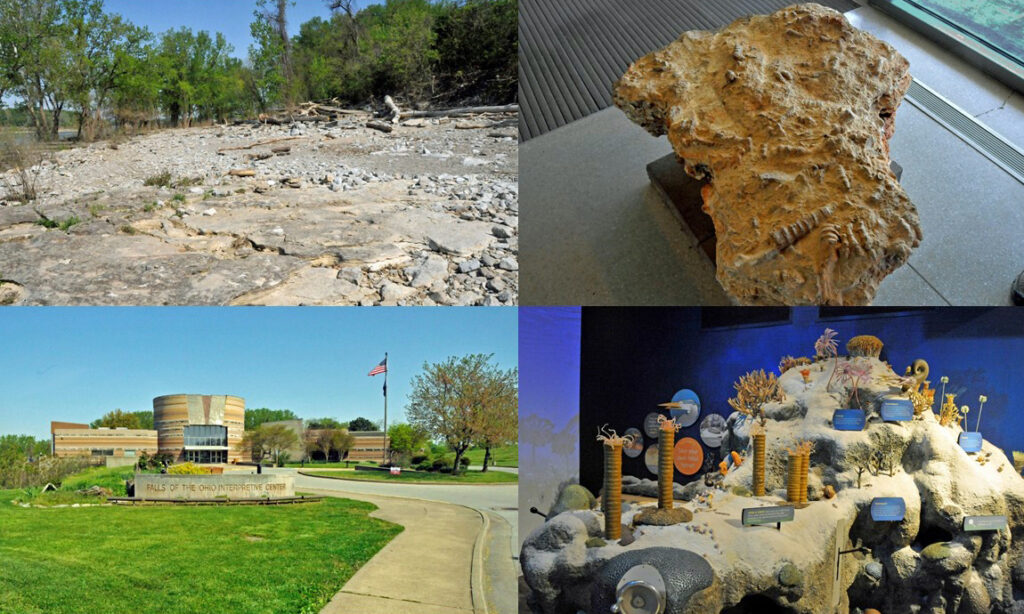Few places in the world allow visitors to observe the results of 390 million years of both natural and human history. Falls of the Ohio State Park, about 112 miles south of Indianapolis, is such a place.
Three hundred ninety million years ago, during the so-called “Devonian Period” of geologic history, most of the continents were in the southern hemisphere. What is now Indiana was about 30 degrees south of the equator on Euramerica, much of it covered by a warm shallow sea. During this period, a number of sea animals first came into existence. As these animals died, their remains fossilized in the seabed. As the tectonic plates gradually shifted, Euramerica moved north and eventually became Europe and North America. Starting a few million years ago, melting glaciers created the Ohio River from what had once been the Teays River system and exposed what had once been a Euramerica seabed north of the river. That seabed, along the bank of the Ohio River in Clarksville, Indiana, includes the largest exposed body of Devonian fossils in the world. Scientists have identified about 600 species of sea animals in the fossil bed, including trilobites, an extinct arthropod, hinged-shelled brachiopods, and crinoids resembling a starfish on a stalk.
Today, the fossil bed is part of the Falls of the Ohio State Park. The park’s 3000-square-feet interpretative center includes interactive exhibits telling the story of the fossil bed and the geologic and human history of the Ohio River basin. Visitors are encouraged to walk in the fossil bed and try to identify any fossils they find. Some extraordinary fossil examples are displayed at the entry to the interpretative center. The Falls of the Ohio State Park also includes sites important to the American Revolution and the Lewis and Clark Expedition, which we will talk about next week.
